Procaine hydrochloride: mechanism of action, clinical applications and side effect
General Description
Procaine hydrochloride is a local anesthetic that works by inhibiting nerve impulse transmission and modulating sodium channels. It blocks the generation of action potentials and disrupts pain signal transmission. It is commonly used in surgical procedures, dermatology treatments, diagnostics, and cardiovascular procedures to provide temporary loss of sensation. It is also being investigated as an anticortisol drug for HIV and AIDS treatment, with potential applications in Alzheimer's disease. However, procaine hydrochloride may cause side effects such as allergic reactions, cardiovascular changes, central nervous system effects, respiratory depression, gastrointestinal symptoms, and local anesthetic toxicity. Careful monitoring and dosage adjustment are necessary to minimize risks.
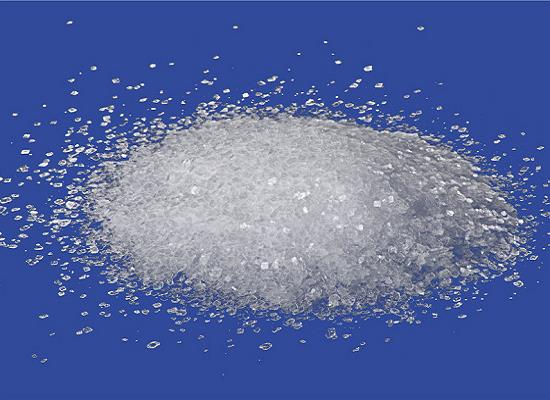
Figure 1. Procaine hydrochloride
Mechanism of action
Procaine hydrochloride is a local anesthetic that functions by inhibiting the transmission of nerve impulses. It achieves this by interfering with the depolarization and repolarization process of nerve cells, which prevents the generation of action potentials. By blocking these electrical signals, procaine hydrochloride effectively inhibits the transmission of pain signals along the nerve pathway. Furthermore, procaine hydrochloride can modulate the function of sodium channels, which are responsible for the generation and propagation of action potentials. By influencing these channels, the drug further disrupts the transmission of pain signals in the affected area. Overall, procaine hydrochloride acts as a local anesthetic by blocking the transmission of nerve impulses and modulating sodium channels, resulting in the loss of sensation in the administered area. This mechanism provides effective pain relief for patients undergoing localized procedures. 1
Clinical applications
Local anesthetics
Procaine hydrochloride is a widely utilized local anesthetic for temporary pain relief in various clinical procedures. It can be administered via injection or topical application and finds applications in surgery, dermatology, diagnostics, and cardiovascular interventions. In surgical settings, it aids in wound suturing, lump removals, dental procedures, cesarean sections, and orthopedic surgeries. Dermatologists use it to alleviate itching, pain, and inflammation associated with skin conditions. During diagnostic procedures like needle biopsies, aspirations, and IV insertions, procaine hydrochloride provides anesthesia. Additionally, it assists in anesthesia administration and management of cardiac arrhythmias during cardiovascular interventions. While its use is widespread, caution must be exercised due to potential side effects such as allergies, cardiovascular changes, central nervous system effects, respiratory depression, gastrointestinal symptoms, and local anesthetic toxicity. Therefore, careful monitoring and proper dosage adjustment are crucial to minimize risks. 2
Anticortisol drug
Procaine hydrochloride, under development by Samaritan Pharmaceuticals, is an anticortisol drug for HIV and AIDS treatment. It targets elevated cortisol levels in diseases like AIDS, which can reduce HIV infectivity. Preclinical investigations also explore its potential for Alzheimer's disease treatment. Altachem Pharma previously held a license for procaine manufacturing but terminated the agreement. Cato Research assists global manufacturing and FDA approval. Clinical trials, including a phase I trial in Canada, are ongoing. Virucort 50 seeks orphan drug designation for treating depression in HIV-positive children. Positive results led to requests for switching children from placebos to Anticort. Overall, progress is being made towards broader use and regulatory approval. 3
Side effect
Procaine hydrochloride is a local anesthetic commonly used to block nerve impulses and provide pain relief during localized medical procedures. However, it can potentially cause several side effects. Allergic reactions are rare but may occur, resulting in symptoms like skin rash, itching, or even anaphylaxis. Procaine hydrochloride can affect the cardiovascular system by altering heart rate and blood pressure. It may lead to bradycardia, arrhythmias, or, in severe cases, myocardial ischemia or infarction. The central nervous system can be affected by procaine hydrochloride, causing stimulation with symptoms of restlessness, excitement, dizziness, or even seizures. Rarely, it may induce CNS depression, leading to drowsiness or coma. Respiratory depression or arrest can happen, particularly with high doses or in sensitive individuals. Gastrointestinal symptoms like nausea, vomiting, and abdominal pain are possible side effects. Local anesthetic toxicity is another risk, presenting as numbness, tingling, muscle twitching, convulsions, and, in severe cases, cardiovascular and respiratory arrest. 4
Reference
1. Kania BF, Kania K. Pharmacological and toxicological aspects of combination of beta-lactam and aminoglycoside antibiotic, prednisolone and procaine hydrochloride on the example of Vetramycin. Pol J Vet Sci, 2003, 6(4):279-296.
2. Drugs and Lactation Database (LactMed?) [Internet]. Bethesda (MD): National Institute of Child Health and Human Development. Procaine. 2021.
3. Procaine oral stabilised--Samaritan pharmaceuticals: SP-01, SP001. Drugs R D, 2004, 5(2):108-109.
4. Ruetsch YA, B?ni T, Borgeat A. From cocaine to ropivacaine: the history of local anesthetic drugs. Curr Top Med Chem, 2001, 1(3):175-182.
);You may like
Related articles And Qustion
Lastest Price from Procaine hydrochloride manufacturers
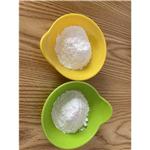
US $1.00/g2024-05-01
- CAS:
- 51-05-8
- Min. Order:
- 1g
- Purity:
- 99%
- Supply Ability:
- 10 tons

US $0.00/kg2024-05-01
- CAS:
- 51-05-8
- Min. Order:
- 1kg
- Purity:
- 99%
- Supply Ability:
- 10000kg
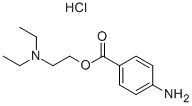
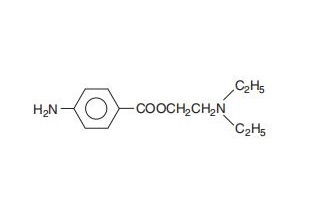
![330786-24-8 Quantification of 5-(4-phenoxyphenyl)-7H-pyrrolo[2,3-d]pyriMidin-4-ylaMinemechanism of 5-(4-phenoxyphenyl)-7H-pyrrolo[2,3-d]pyriMidin-4-ylaMineapplications of 5-(4-phenoxyphenyl)-7H-pyrrolo[2,3-d]pyriMidin-4-ylaMine](http://www.chemicalbook.com/NewsImg/2019-11-14/201911141346405180.jpg)
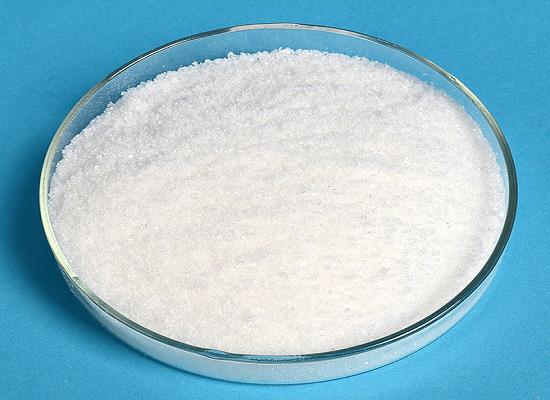
![330786-24-8 Quantification of 5-(4-phenoxyphenyl)-7H-pyrrolo[2,3-d]pyriMidin-4-ylaMinemechanism of 5-(4-phenoxyphenyl)-7H-pyrrolo[2,3-d]pyriMidin-4-ylaMineapplications of 5-(4-phenoxyphenyl)-7H-pyrrolo[2,3-d]pyriMidin-4-ylaMine](/NewsImg/2023-07-19/6382539295613056606096344.jpg)